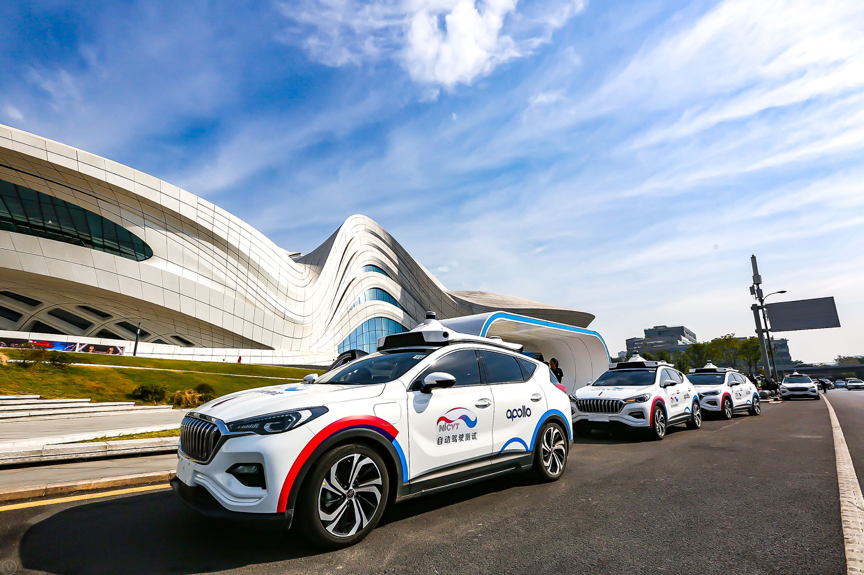SOURCE / INDUSTRIES
Baidu fully opens Apollo Go Robotaxi services in Beijing

An autonomous Apollo Robotaxi from Baidu in Changsha, Central China's Hunan Province Photo: courtesy of Baidu
Chinese search engine Baidu announced Sunday that it has opened up its Apollo Go Robotaxi services to users in Beijing, following its success in other Chinese cities, further cementing its lead in the autonomous driving sector.
The service encompasses the largest total area and longest road network (about 700 kilometers) for a manned autonomous driving test area in China, with nearly 100 pick-up and drop-off stations covering residential and business areas in Beijing's Yizhuang, Haidian, and Shunyi districts, Baidu said.
Consumers are able to enjoy self-driving taxi rides for free without the need to make an appointment in those districts after registering on Baidu Maps or the Apollo website.
An Apollo Robotaxi is able to accommodate up to two passengers aged between 18 and 60. Based on the current laws and regulations, safety drivers are still required in the car to ensure driving safety. The taxi is equipped with Level-4 pilot self-driving technologies.
As the first company to allow people in the Chinese capital to use Robotaxis, Apollo Go will launch 40 vehicles.
A Beijing resident, surnamed Liu from Yizhuang district, told the Global Times on Monday that he was excited to give the service a try, but so far he claims he has not been able to successfully hail a ride.
"Maybe the fleet is still very small compared with the vast demand in the district," Liu said, adding that he believes Robotaxis will become part of people's daily lives as the self-driving technology matures.
Beijing, one of technology and innovation centers of China, is a strategic location for artificial intelligence and autonomous driving development. In 2019, Beijing ranked first in China for numbers of test licenses and vehicle categories, as well as diversity of test scenarios.
In addition to Beijing, Apollo Go has opened services to the public in cities including Changsha, capital of Central China's Hunan Province, and Cangzhou, North China's Hebei Province.
Baidu's Robotaxi service was first introduced to Changsha in September 2019 with an initial fleet of 45 driverless cars, about two years after Google's self-driving unit Waymo started its pilot project in Arizona.
In December 2019, Baidu Apollo claimed 40 of the first batch of manned autonomous driving test licenses issued by Beijing.
According to the 2018 and 2019 editions of the Beijing Autonomous Vehicles Road Test Report, Baidu's Apollo beat out industry peers with the largest fleet of test vehicles, highest total mileage, and most diverse test scenarios since Baidu started research and development of the nascent technology in 2013.
China and the US have become the two major players in the autonomous driving sector in recent years.
During the COVID-19 pandemic, China's autonomous driving industry has accelerated its growth as the virus has led the market to take the mass application of the driverless technology more seriously.
On May 14, Chinese autonomous driving start-up Pony.ai obtained a license in Beijing to carry out manned autonomous driving tests. The firm has begun road tests including those for online car hailing and shuttle services in certain districts in Beijing.
